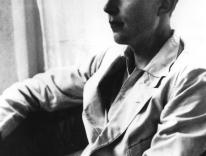 At the Immanent Frame, the sociologist of religion Michelle Dillon (author of a very good book, Catholic Identity: Balancing Reason, Faith and Power) sees a "Catholic sensibility" in Obama's commencement address at Notre Dame:
At the Immanent Frame, the sociologist of religion Michelle Dillon (author of a very good book, Catholic Identity: Balancing Reason, Faith and Power) sees a "Catholic sensibility" in Obama's commencement address at Notre Dame:
"I am not thinking of Obama's references to the "imperfections of man" and to "original sin," or to the invocation of "God's creation"--though these religious references are important. More striking was how Obama, a non-Catholic, showed his ability to think and to talk like a Catholic. He empathically did this by vividly using in his address very particular experiences as grounds legitimating the validity of universal claims. During his speech, Obama exemplified the translation that necessarily occurs in everyday lived experience between universal principles of morality and the particularistic ways in which those principles get worked out on the ground by (imperfect) human beings. This he accomplished not by abstract talk about lofty principles but by the stories he told..."
Those stories would be the references to Father Hesburgh and Cardinal Bernardin. As intriguing as anything was Dillon's, outro, in which she says that "Obama has put religion back in civil religion, and has achieved this not by simply invoking religious words in public setting ("God bless America"), but by deploying a narrative style that both fits with, and gives lived experience, to the theological argument that universal moral principles are a society's foundation and anchor."She also notes thatObama's speech is "unlikely to change the passions and fundamental moral divisions that exist around abortion." And the comments below her piece have some interesting pushback from the likes of Rick Garnett and Tom Farr. Check it out...


